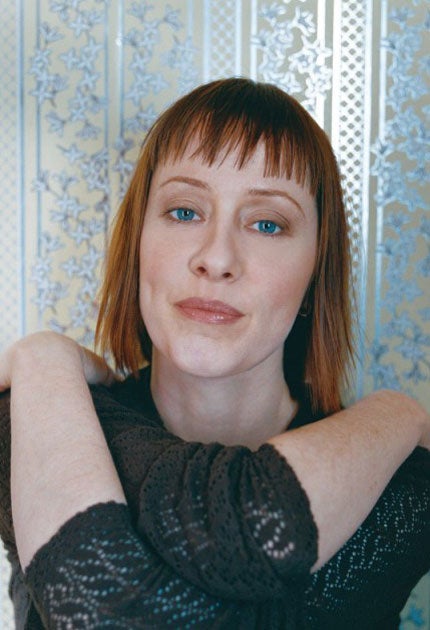The songs remain the same, the profits rise
It's fine for bands to re-record their hits, says Elisa Bray – but don't let them tell you it's all about artistic integrity

Last week Squeeze released a new album. Except it wasn't really a "new" album, nor was it strictly a "best of". It is a re-recording of their greatest hits. Squeeze's Spot the Difference is a collection of their most popular songs re-recorded by the band as faithfully as possible to the originals. When fans already have access to three versions of greatest hits by Squeeze, not even their biggest fans really need a fourth. Indeed, when I ask Glenn Tilbrook, co-founder of Squeeze, what fans can hope to gain from Spot the Difference that they don't already have from Squeeze's previous greatest-hits collections, he says: "Not much!"
But it's not for the fans. It's in aid of artistic control and pure business-oriented cunning. Squeeze are not alone. In the past few years, several artists have been re-recording their own music and releasing it themselves: Suzanne Vega, Squeeze, AC/DC, Twisted Sister, Albert Hammond and Sparks, as well as others whose musical careers span the decades. The reason, they claim, is the rise in their songs being synced in adverts, television and film soundtracks. Sync deals are a potentially big source of revenue for artists, but so long as the back catalogue belongs to a major label which can charge clients whatever sum they like for the usage of a song, the artist's portion will vary. For many such long-standing acts, their contract with a record label may have long expired, but they still find themselves tied to the label. By recreating their greatest hits, they offer clients in television, film and advertising an alternative option.
For Squeeze, whose back catalogue is owned by Universal, the re-recordings were sparked by a new version of "Goodbye Girl" they undertook for an advertisement for a company a few years ago. They decided that, while they were at it, they might as well record more old songs.
Tilbrook explains: "Universal will do whatever they want. We can undercut their rate because the money goes straight to us, so we can undermine their business while promoting our own. They're very inflexible. Most of the back catalogue is not available to us, but they're our babies. We're below Universal's commercial radar, yet they won't let us go, and this is some way of wrestling our control back. I have no compunction in undercutting Universal. For a company like Universal, it's all about the catalogues. The record companies are responsible for their own demise because they are not forward looking in where they invest."
Other artists who reclaimed control over their songs include Albert Hammond, whose song was used in a Vicks Vapour Rub advert, and Sparks, who re-recorded "This Town Ain't Big Enough for Both of Us", while many more are following to make the most of the increasing sync deals on offer. But it's not always just a case of recreating the tracks in the same mould as the original. Suzanne Vega re-recorded most of her back catalogue, not just the hits, with the intention of providing a different, more intimate sound for her fans on the album Love Songs.
But where does that leave the fans? Squeeze's new album recreates originals such as "Up the Junction", "Cool for Cats" and "Tempted" with the same templates, but as Tilbrook admits, it was hard work without the creativity, "like putting building blocks together." However, it compares well to the previous greatest-hits collections. "We did such a good job that it stands up," Tilbrook says. "Perversely, I'm pleased with it." A couple of the tracks are even an improvement on their originals – the gospel reworking of "Some Fantastic Place" and Tilbrook's improved vocals in "Black Coffee in Bed", for example. But if you have the other greatest-hits albums, there's little reason for buying it. Leave it to the advertising and television execs.
Join our commenting forum
Join thought-provoking conversations, follow other Independent readers and see their replies
Comments
Bookmark popover
Removed from bookmarks